


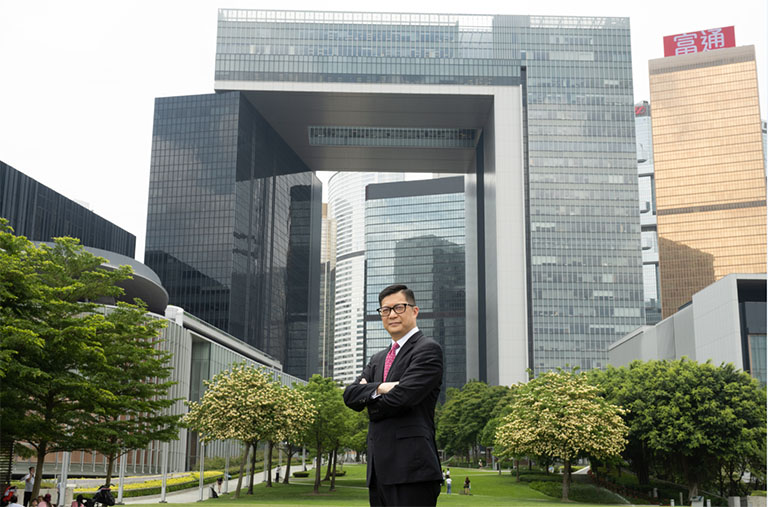
Civil Service Newsletter Editorial Board
“Talents are crucial to enhancing the competitiveness of our city.” Mr Tang emphasised that the Hong Kong Special Administrative Region Government (HKSAR Government) is making all-out, concerted efforts to build a vibrant economy and seeking development opportunities. Immigration facilitation measures are an integral part of attracting talents and consolidating the role of Hong Kong as an international financial centre.
Mr Tang opined that promotion of the “southbound and northbound” two-way flow of talents can facilitate the building of talent pool by the HKSAR and the Greater Bay Area (GBA). He said that the coverage of the Mainland’s GBA exit endorsement for talents was expanded to Beijing and Shanghai last year, and the period of stay in Hong Kong for the exit endorsement for business visit was extended to 14 days. As at end-March this year, more than 50,000 arrivals of holders of exit endorsement for talents were recorded. On “northbound” travelling, non-Chinese Hong Kong permanent residents have been issued, starting from July 2024, the Mainland Travel Permits for Hong Kong and Macao Residents (Non-Chinese Citizens) with five-year validity period. Cardholders can enjoy self-service clearance without the need to fill in entry record card. The initiative has received overwhelming response and 58,000 travel permits have been issued so far.
Mr Tang added that the HKSAR Government also strives to explore talent exchange with other regions. For example, foreign staff of Hong Kong-registered companies can make applications in Hong Kong for multiple-entry visas to the Mainland up to a maximum of five years. In recent years, Hong Kong has progressively relaxed the criteria for nationals of Vietnam, Cambodia, Laos and Myanmar applying for multiple-entry visas for travel and business. The validity period of such visas has been extended to three years. This further fosters talent exchange with ASEAN countries.
In addition, the Government launched in March this year the Immigration Facilitation Scheme for Invited Persons to provide more convenient immigration arrangements for invited persons from ASEAN countries. Relevant policy bureaux/departments of the Government will actively invite ASEAN nationals who can make considerable contributions to Hong Kong's economic development to participate in the Scheme.
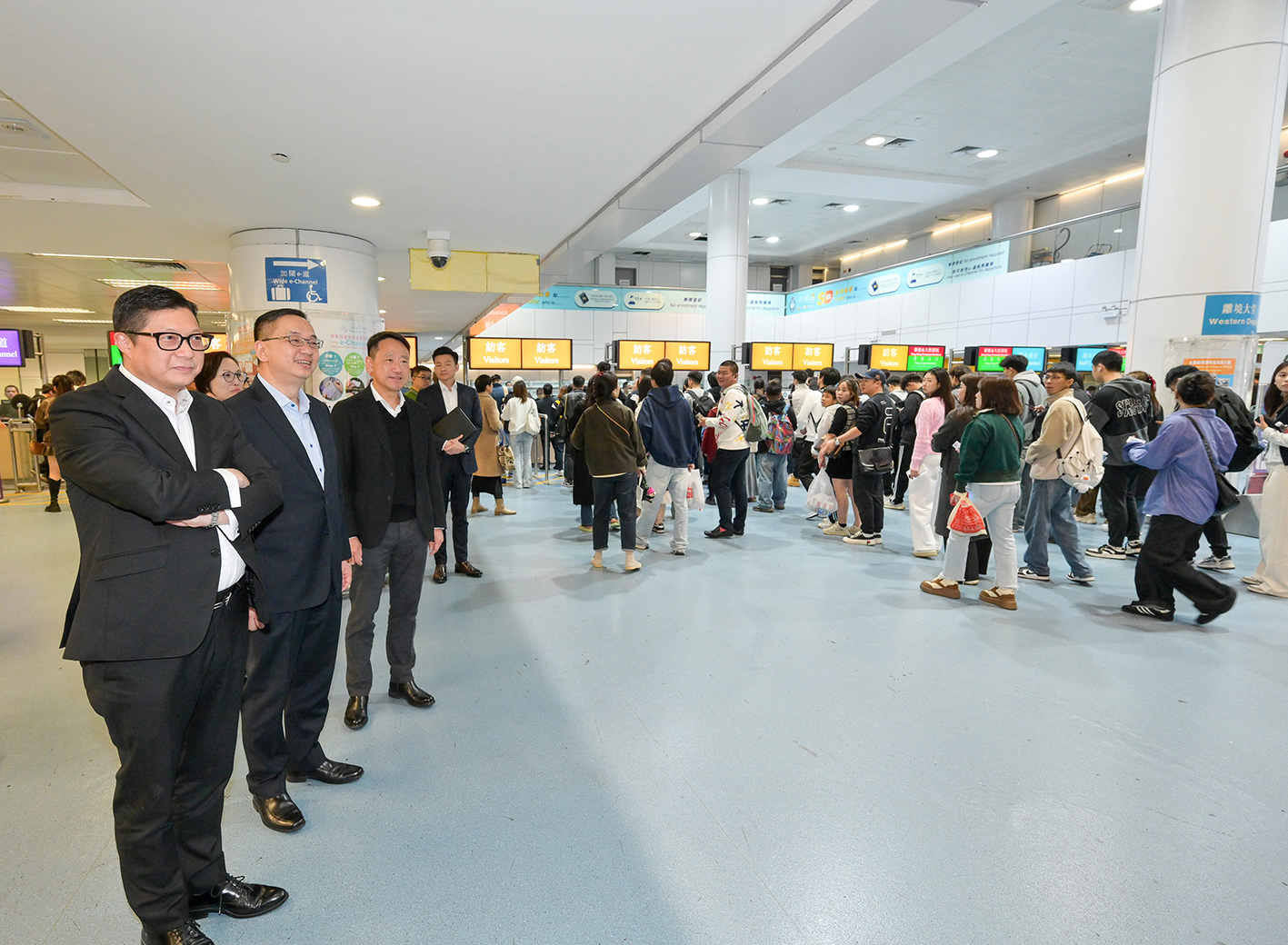
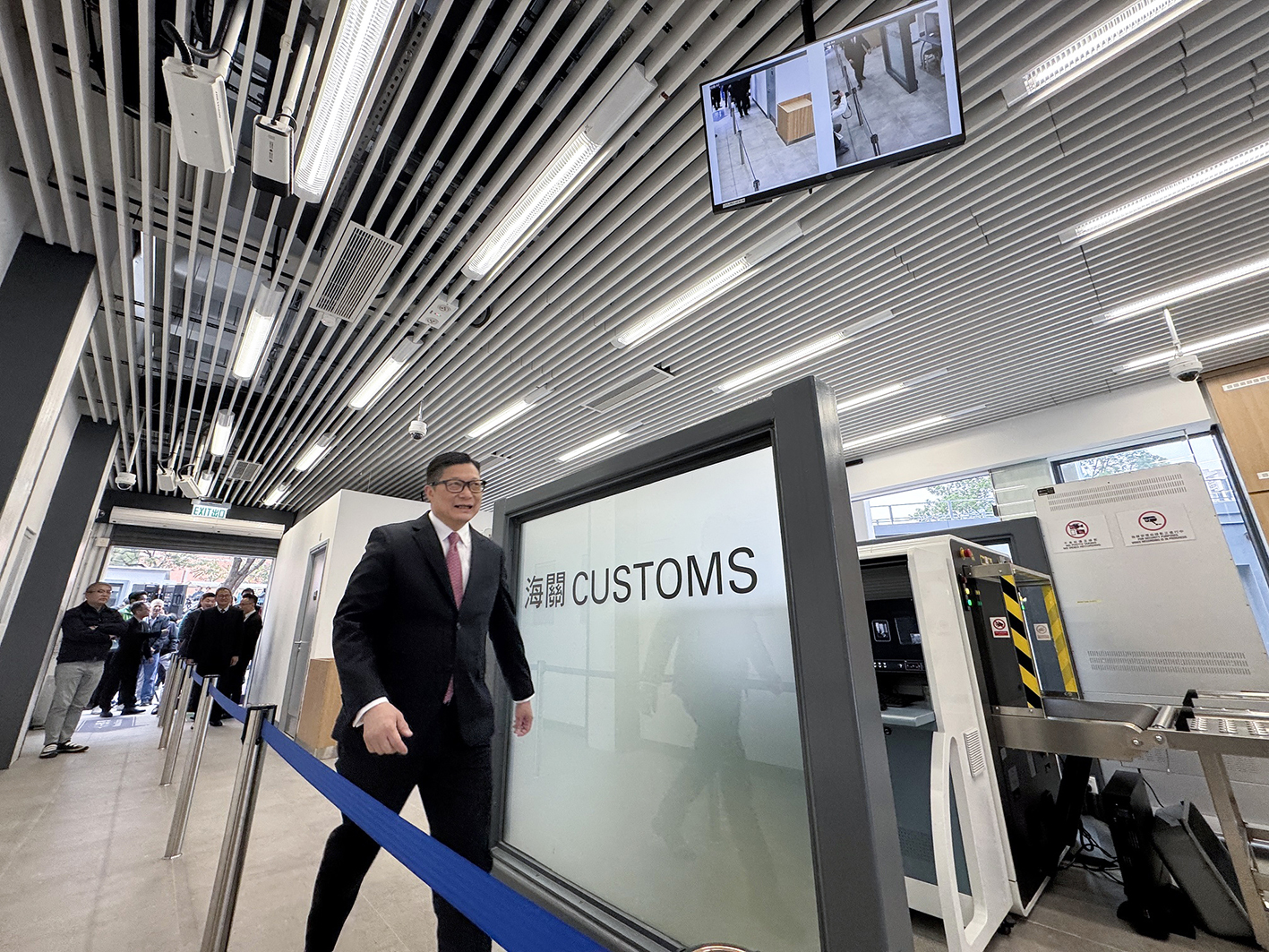
“In the digital era, law enforcement agencies have to keep abreast of technological developments. Disciplined services and auxiliary services are encouraged to actively explore the use of innovative technologies for on-going reforms in various areas like law enforcement, rescue and immigration, so as to enhance efficiency in pursuit of excellence.” Mr Tang indicated that SB will continue to invest resources into the application of innovative technologies, in a bid to promote intelligent solutions for security and law enforcement-related work in Hong Kong.
The Government has introduced facial recognition technology at Chung Ying Street Checkpoint. Holders of valid closed area permits can enter and leave the street in “contactless” mode upon prior enrolment. “This pilot scheme not only enhances the capacity of the checkpoint in processing the flow of people, but also showcases the digital technology of Hong Kong as an international metropolis.”
Mr Tang also mentioned that the Hong Kong Police Force (HKPF) established the Force Drone Cadre in October last year, applying drone technology to facilitate and enhance rescue. Meanwhile, HKPF has also developed HKSOS, an emergency rescue mobile application, which allows the public to directly connect to the 999 Emergency Response Centre with just one click of the button in case of emergencies. Even if there is no network coverage, the Police can detect the signal, and confirm the location for conducting search and rescue.
The Customs and Excise Department (C&ED) actively implements the Smart Customs Blueprint to speed up customs clearance through the application of technology and to combat offences like smuggling by adopting advanced equipment including computed tomography scanners, auto-detection devices for X-ray checkers, and Smart Under Vehicle Robot. C&ED is also taking forward the preparatory work for the Customs Big Data Application System, with a view to enhancing law enforcement.
The Correctional Services Department (CSD) has introduced “smart prison” elements to further improve the operational efficiency of the reception centre. The Intelligent Robotic Monitoring System has been adopted to assist correctional officers in conducting nighttime patrols and enhancing supervision of persons in custody. Moreover, new technology has been introduced to monitor the health indexes of patients in the reception centre’s hospital.

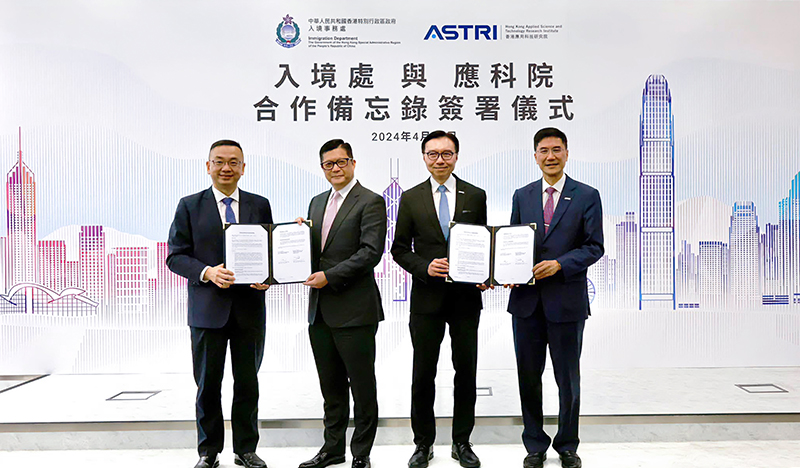
SB has spared no effort in combating drugs. In response to the problem of “space oil drugs”, SB has taken resolute actions to list the main ingredient called etomidate and three analogues as dangerous drugs with immediate effect following the publication in the Gazette on 14 February 2025. Any person trafficking, manufacturing, in possession or consumption of them commits a criminal offence. Mr Tang said that there were a total of 300 reported abusers of “space oil drugs” last year, of which 75% were young abusers under the age of 21. To date, Hong Kong has recorded three fatal cases suspected to involve “space oil drugs”.
Mr Tang was sincere in saying that “vaping ‘space oil drugs’ can be addictive, and abuse of the drugs can cause nausea, loss of consciousness, memory loss, etc. Apart from legislation to combat these drugs, the Narcotics Division has proactively collaborated with various departments and agencies to strengthen efforts in terms of preventive education and publicity, especially targeting young people.” He pointed out that the Government places great emphasis on cross-sector and cross-profession collaboration, seeking to raise the anti-drug awareness among the public, and reaching out to hidden drug users through additional channels for providing support.
The Government also strives to protect children and mentally incapacitated persons (MIPs) from sexual abuse. Launched in 2011, the Sexual Conviction Record Check (SCRC) Scheme allows employers to check whether the potential employees have sexual conviction records before hiring them to engage in any work related to children and MIPs. To strengthen protection, the SCRC Scheme has been expanded to cover prospective self-employed persons. For example, parents hiring private tutors, coaches, etc., may request them to undergo record check.
“The Government attaches great importance to the well-being of children and MIPs, and will consider expanding the scope of the SCRC Scheme to cover all volunteers one year later the earliest.” Mr Tang explained that the ultimate goal of the Government is to expand the SCRC Scheme to cover all existing employees and self-employed persons, in the hope that members of the public can go the extra mile and make concerted efforts to build a stronger protective barrier for this category of people.
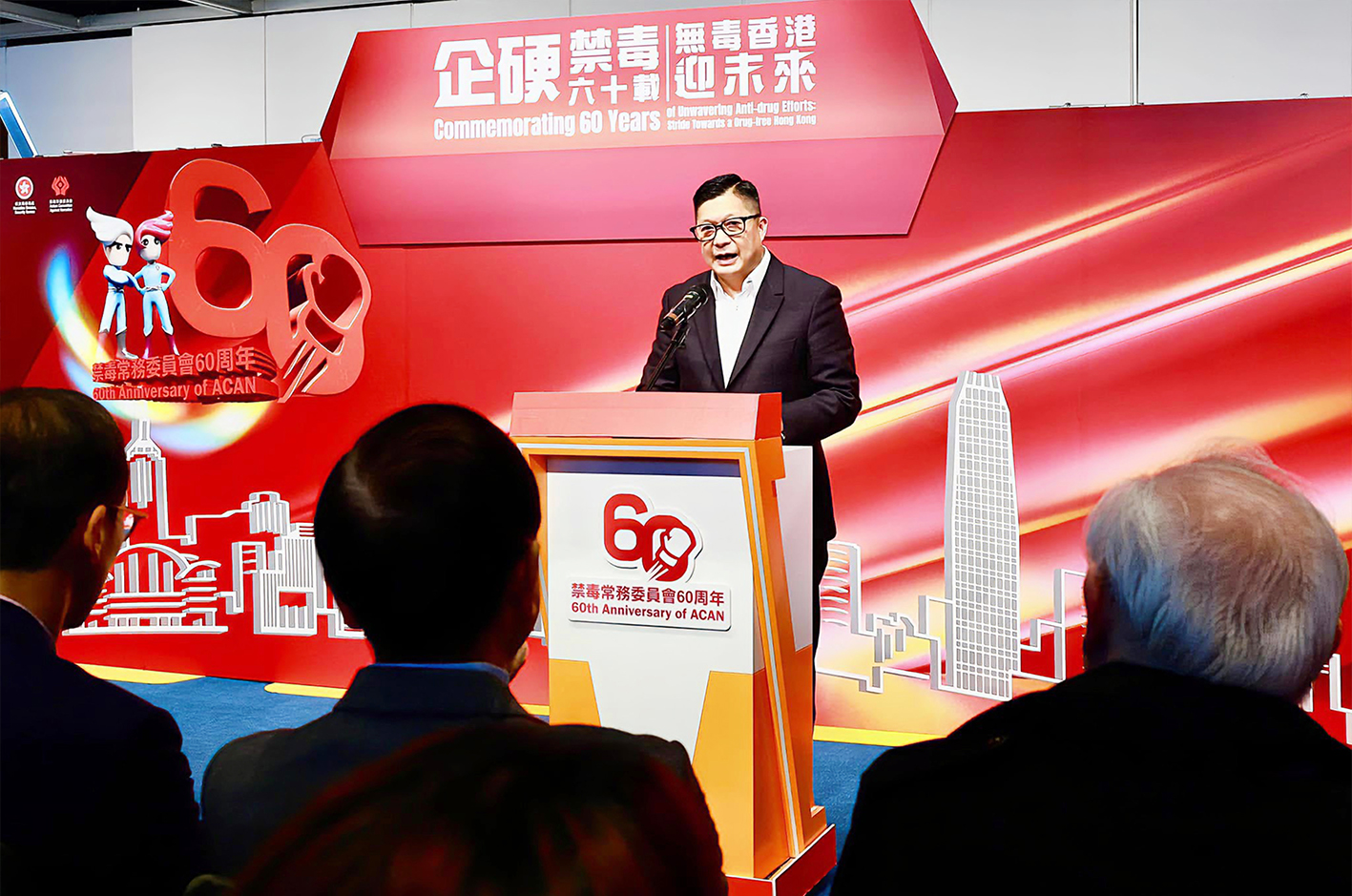

“With the completion of various major infrastructure, the Hong Kong Fire Services Department (FSD) has been enhancing the fire protection facilities acceptance process.” Mr Tang said that FSD has established the One-stop Coordination Office for New Fire Protection Facilities Acceptance to provide co-ordination and support services in respect of the acceptance inspection of fire protection facilities of new residential buildings as well as projects that facilitate business operations. Through strengthening communication with the stakeholders and leveraging technology, the target is to drastically reduce the time required for acceptance inspections of regular projects from 52 working days to 35 working days. As for public housing projects, the target is for the process to be completed within 22 working days.
To assist owners of old buildings in enhancing fire safety facilities, FSD has established the first Building Improvement Support Centre in Yau Tsim Mong District, and plans to set up a centre each in Wan Chai and Yuen Long by the third quarter of 2025 to provide advisory services. Meanwhile, the Building Improvement Special Duty Team which has been established by FSD in the first quarter of 2025 and officially named as the "Divisional Public Safety Team", carries out inspections of 1,900 old buildings every year to strengthen law enforcement. Furthermore, to address an acute demand for residential care places for the elderly in society and on the premise of not compromising fire safety, the height restriction on parts of residential care homes for the elderly used for dormitory purpose was relaxed on the condition that specific fire safety requirements have been met and appropriate management measures have been adopted, in order to increase the supply of residential care places.
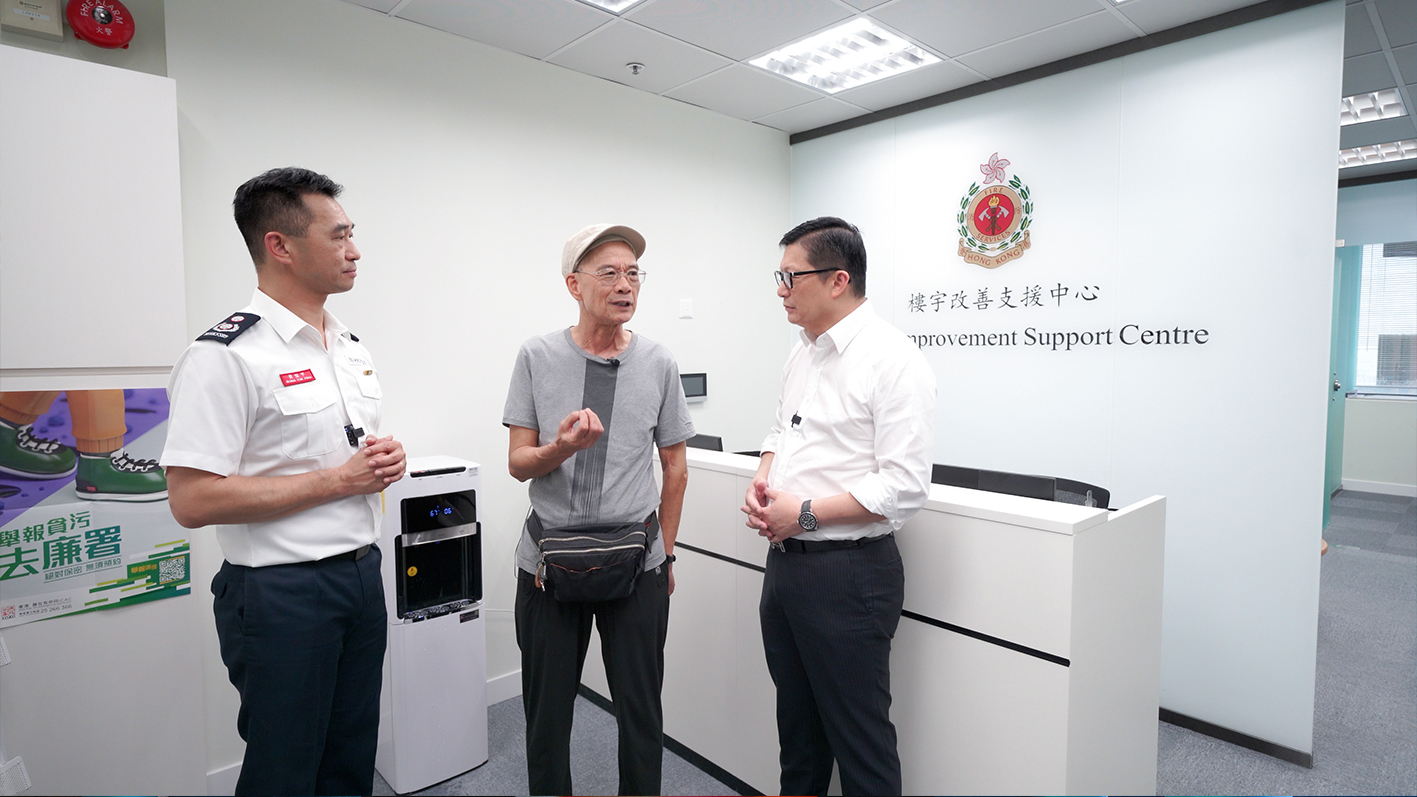
Mr Tang also highlighted SB’s efforts in international collaboration. C&ED assumed the role as the World Customs Organisation Vice-Chairperson for the Asia/Pacific Region on 1 July last year. Since then, a series of conferences and workshops at international and regional levels have been organised to foster closer co-operation among regional enforcement agencies. CSD also served as the host of the Asian and Pacific Conference of Correctional Administrators for the fourth time in November last year, and concluded the first Greater Bay Area Correctional Services Tactical Skills Competition in January this year, jointly promoting the professional development of correctional services in GBA.
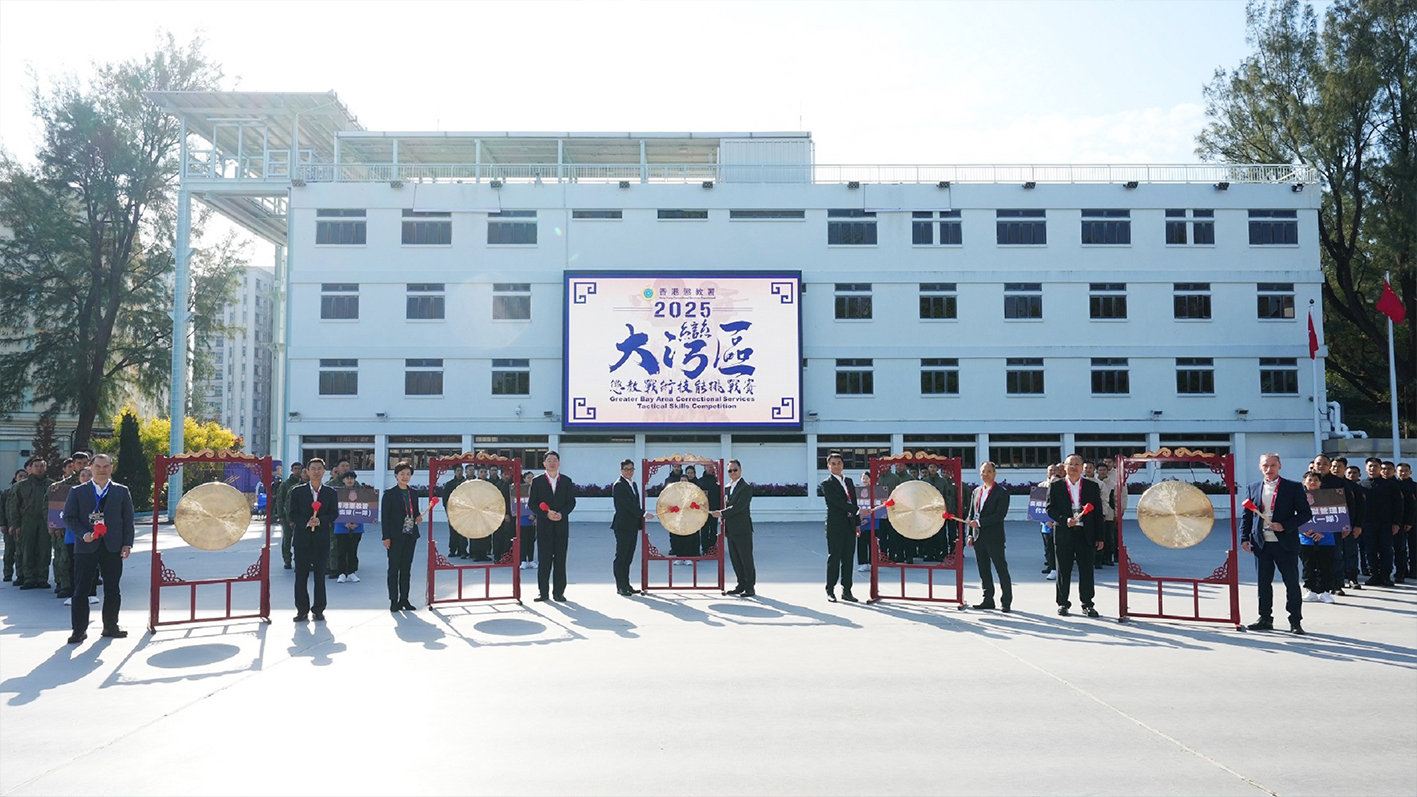
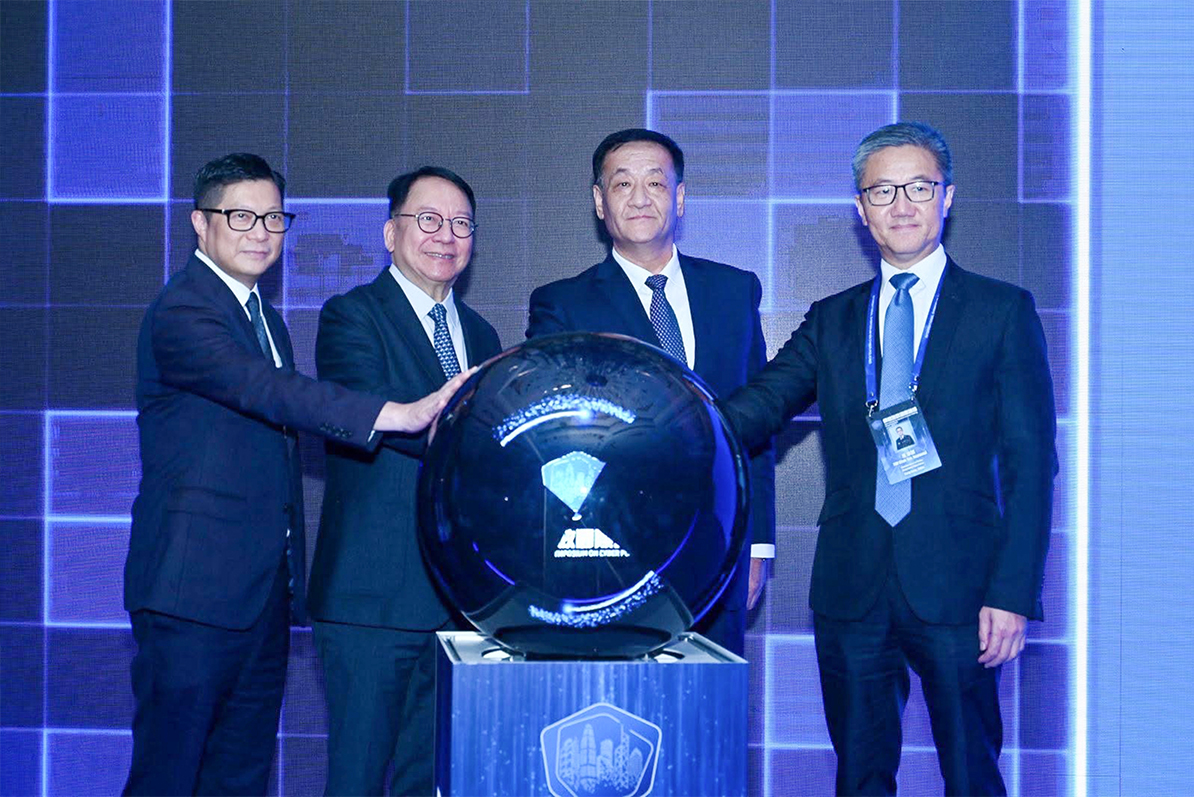
Moreover, in November last year, HKPF made a successful bid on behalf of China to host the International Criminal Police Organization General Assembly (General Assembly) in Hong Kong in 2026. Mr Tang was deeply honoured for HKPF’s achievement, saying that “I am grateful to our country for giving us the opportunity to showcase Hong Kong’s charm in the international arena. This event is an important chance for us to display the success of 'One Country, Two Systems' to the world. The HKSAR Government will make every endeavour to host the General Assembly to ensure a smooth event and to tell good stories of China and Hong Kong.”
In the interview, Mr Tang elaborated on the extensive portfolio of SB, which covers a wide spectrum of important policy areas. He also accepts media interviews from time to time to explain various policies, and often attends functions to communicate with different sectors in the community. Despite his hectic schedule of official duties, Mr Tang shows immense passion for his work, and finds time for family gatherings. “I try my best to spend time with my family no matter how busy I am. Given the constantly heavy workload, I sleep less now in order to save more time for my family.”
Last year, Mr Tang welcomed his new family member Lulu, a cheerful and playful Bichon Frise. He shared the joy of having this endearing dog at home, telling us that “Lulu is always wearing a heart-melting smile, making me feel delighted and relaxed. Whenever I come home late from work, Lulu is there to greet me at the door, which sweeps away all my fatigue and stress.”
